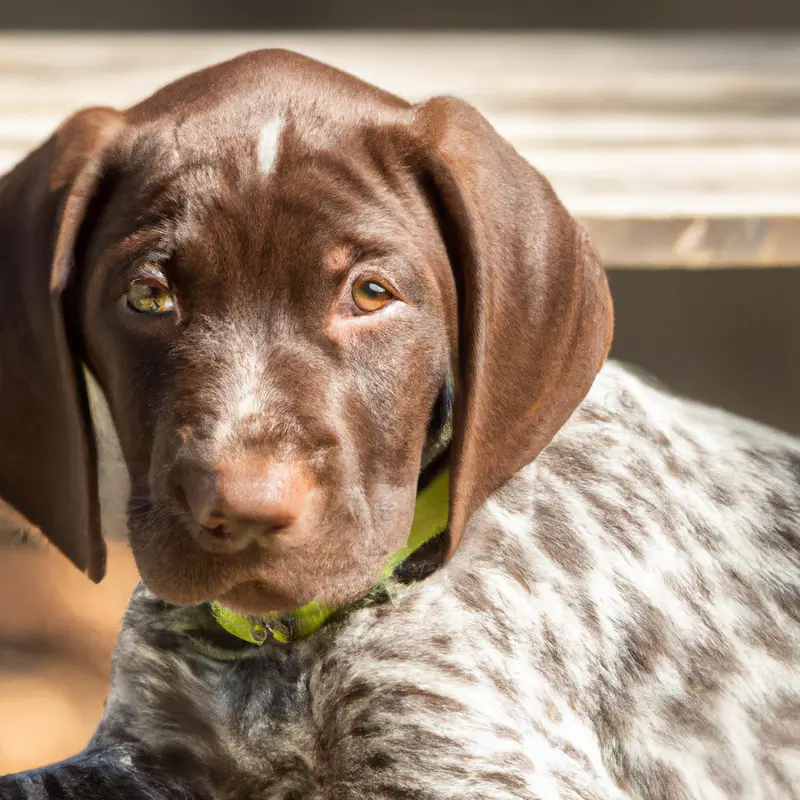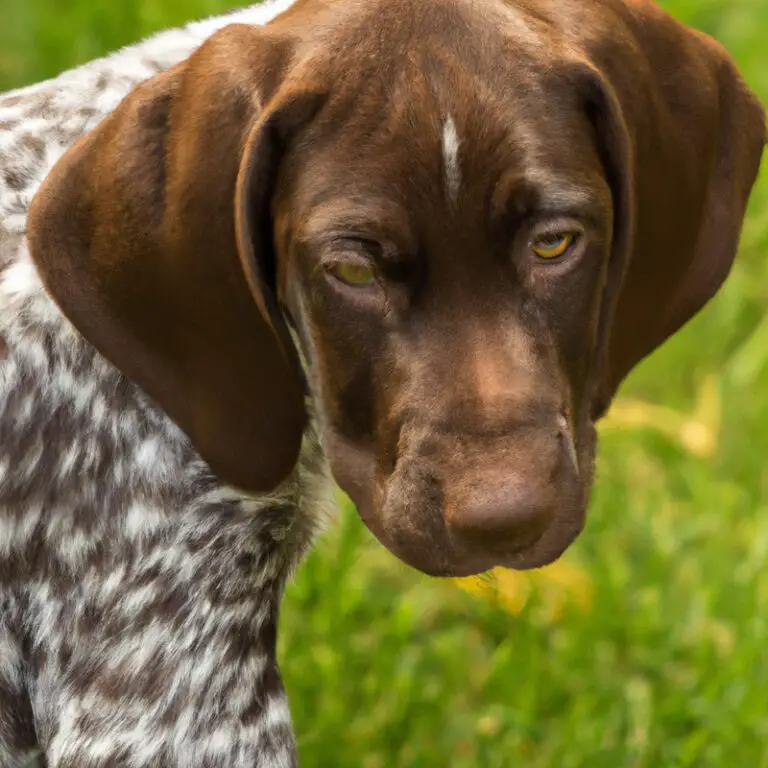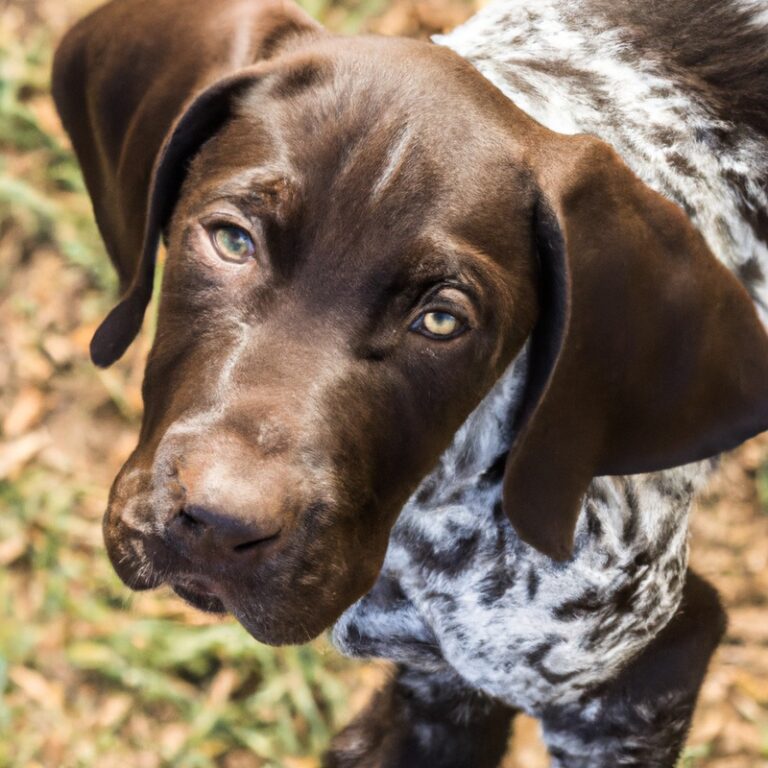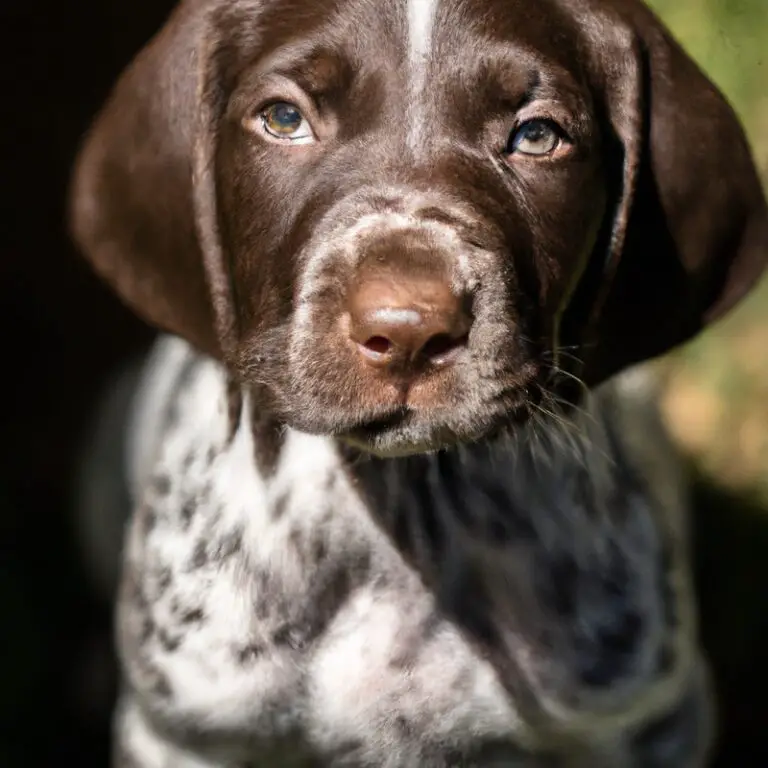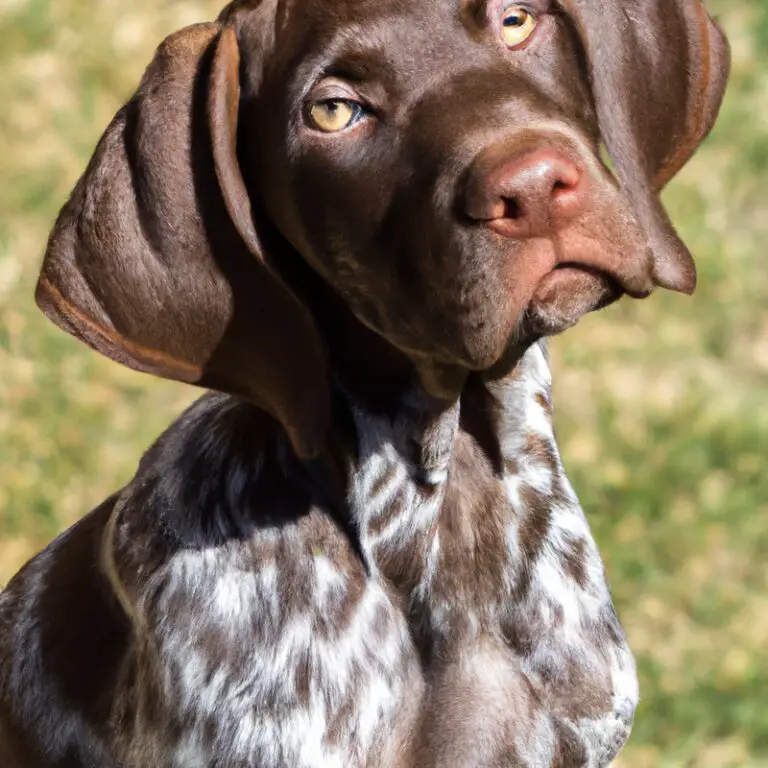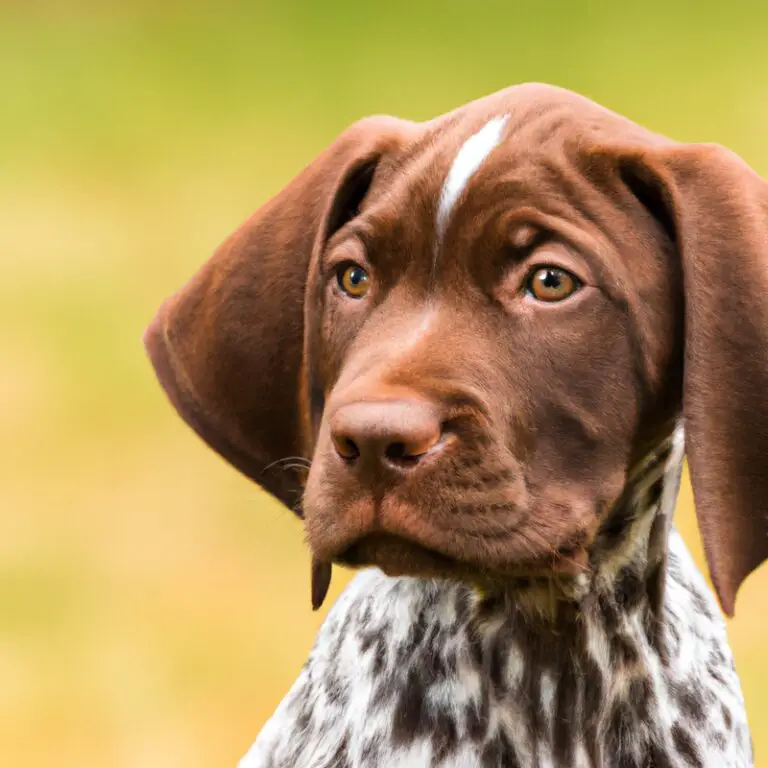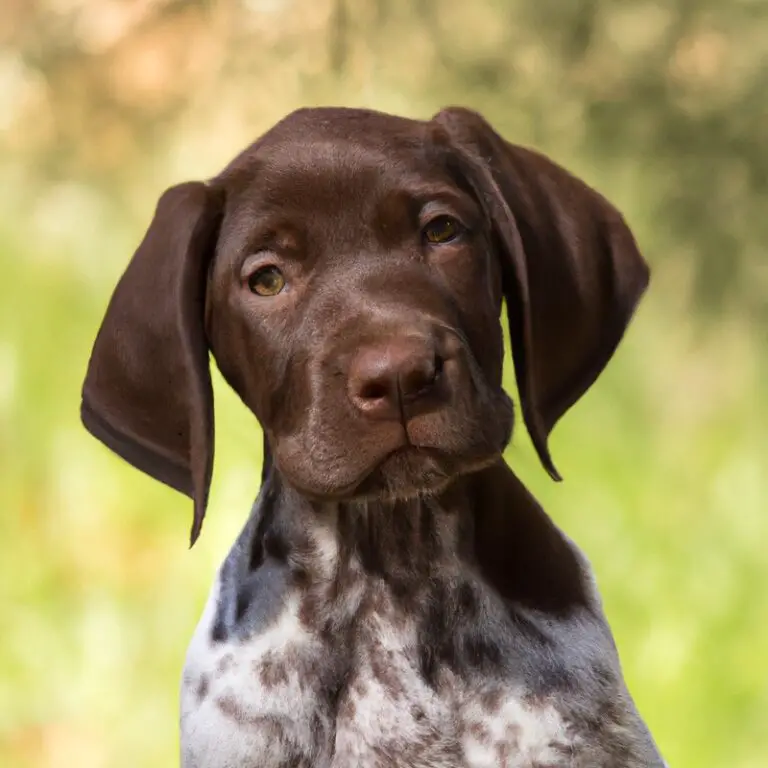Can a German Shorthaired Pointer Be Trained To Be a Hunting Dog Without Previous Experience?
Key Takeaways:
- German Shorthaired Pointers can be successfully trained as hunting dogs even without prior experience.
- Early socialization and consistent training are crucial for the development of hunting skills in German Shorthaired Pointers.
- The breed’s natural instincts, intelligence, and versatility make it well-suited for hunting activities.
- Patience, dedication, and proper guidance are key for turning a German Shorthaired Pointer into an efficient hunting companion.
Imagine taking a blank canvas and turning it into a masterpiece. Now, picture doing the same with a German Shorthaired Pointer and transforming it into a skilled hunting companion.
Can it be done?
As a seasoned expert in dog training, I can confidently say yes! In this article, we will dive deep into the world of training a German Shorthaired Pointer to become a top-notch hunting dog, even if it doesn’t have any prior experience. We’ll explore the unique characteristics of the breed, the importance of proper training, techniques and tips, seeking professional guidance, potential challenges, and the incredible journey of celebrating milestones along the way.
So, let’s unravel the secrets and unleash the full potential of your four-legged friend!
| Yes | No | |
| Pros | German Shorthaired Pointers have a natural hunting instinct and can be trained to become hunting dogs with proper guidance and training. | Without previous experience, it may be more challenging to train a German Shorthaired Pointer to be a hunting dog. |
| Cons | Requires time, effort, and commitment to train and develop the hunting skills of a German Shorthaired Pointer. | If not properly trained and socialized, a German Shorthaired Pointer may exhibit behavior issues that can hinder its ability to become an effective hunting dog. |
| Summary | A German Shorthaired Pointer can be trained to become a hunting dog even without previous experience, but it will require dedication and consistent training to develop its hunting skills. | Without previous hunting experience, it may be more difficult to train a German Shorthaired Pointer for hunting purposes. |
Understanding the German Shorthaired Pointer breed
Key characteristics of German Shorthaired Pointers
German Shorthaired Pointers have several key characteristics that make them excellent hunting dogs. One of their standout traits is their incredible athleticism and stamina.
These dogs are built to run, jump, and swim, making them ideal for covering rough terrains and retrieving game from water.
Another important characteristic of German Shorthaired Pointers is their versatility. They can adapt to various hunting environments and game types.
Whether you’re hunting birds, rabbits, or even larger game like deer, these dogs have the instinct and intelligence to track, flush, and retrieve.
In addition, German Shorthaired Pointers are known for their exceptional scenting ability. They possess a keen sense of smell, which allows them to detect and track game from a distance.
Their natural hunting instincts combined with their scenting skills make them highly efficient hunting companions.
Furthermore, German Shorthaired Pointers are highly trainable and eager to please their owners. They are intelligent dogs that quickly learn and retain commands.
With consistent training and positive reinforcement, these dogs can be trained to be reliable and obedient hunting partners.
Lastly, German Shorthaired Pointers have a friendly and affectionate nature. They make excellent family pets and are great with children.
Their loyal and sociable demeanor adds to their appeal as both hunting dogs and beloved companions.
Natural hunting instincts of German Shorthaired Pointers
German Shorthaired Pointers have natural hunting instincts that make them excellent hunting dogs. First and foremost, their strong prey drive is ingrained in their DNA.
They have a keen sense of smell and exceptional stamina, allowing them to track and chase game for long distances.
Additionally, they possess great athleticism, agility, and speed, which enable them to swiftly navigate various terrains while pursuing their prey. Their natural instincts also include pointing and retrieving, making them versatile hunters.
It’s important to note that while these instincts are innate, proper training is still necessary to refine and channel their hunting abilities effectively.
With the right training, a German Shorthaired Pointer can excel as a hunting companion.
The importance of proper training for hunting dogs
Establishing a strong foundation of obedience
Establishing a strong foundation of obedience is key when training a hunting dog, whether it’s a German Shorthaired Pointer or any other breed. This foundation lays the groundwork for effective communication and control in the field or during hunting activities.
To establish this foundation, it’s important to prioritize basic commands such as “sit,” “stay,” and “come.” Your dog should respond to these commands reliably and consistently.
Use positive reinforcement techniques like treats or praise to reward your dog for following these commands correctly. Consistency is also crucial when building obedience.
Repeat commands consistently and use the same verbal cues and hand signals each time.
This helps your dog understand what is expected of them and reinforces the desired behavior. Training sessions should be short, frequent, and focused.
Aim for several short sessions throughout the day rather than one long session.
This keeps your dog engaged and prevents them from getting bored or tired.
Developing hunting-specific skills in dogs
Developing hunting-specific skills in dogs is an essential part of training them to be successful hunting companions. First and foremost, it’s important to understand the instincts and natural abilities of different dog breeds.
Each breed may have different strengths when it comes to hunting, such as the German Shorthaired Pointer’s ability to track and retrieve game.
To develop hunting skills in dogs, regular exposure to the hunting environment is crucial. By taking them on outdoor excursions and introducing them to different smells and sights, they can start familiarizing themselves with the hunting experience.
Additionally, incorporating obedience training is vital as it establishes the foundation for communication and control between the handler and the dog.
Teaching basic commands like sitting, staying, and recalling are necessary for keeping the dog focused and in control during hunting trips. Furthermore, introducing the dog to the specific tasks of hunting, such as scent training and field work, is important in developing their hunting-specific skills.
Lastly, patience is key.
Developing hunting skills in dogs takes time and consistency. It’s important to remember that not all dogs will excel at hunting, but with the right training and guidance, many can be taught to enjoy and participate in hunting activities.
Training a German Shorthaired Pointer for hunting
Assessing the dog’s potential and aptitude for hunting
Assessing a dog’s potential and aptitude for hunting is an important step before training them for this specific purpose. First and foremost, observe their natural instincts and behaviors.
Look for signs of prey drive, such as intense focus, chasing, and retrieving instincts.
A dog with a strong desire to chase and retrieve is more likely to excel at hunting tasks. Next, evaluate their physical fitness and endurance.
Hunting requires stamina and agility, so make sure the dog is in good overall health and shows enthusiasm for physical activities.
Assess their scent detection ability as well, as a keen sense of smell is crucial for tracking game. Consider the dog’s temperament as well.
A successful hunting dog needs to be intelligent, trainable, and confident.
They should have a bold and persistent nature, yet still be responsive to commands and able to work with a handler. Assess their willingness to learn and their ability to focus on tasks.
Lastly, it’s important to note that not all dogs are naturally inclined for hunting, even within specific breeds.
While training can enhance their skills, it’s essential to assess their instincts, physical abilities, temperament, and overall suitability before embarking on hunting training. This will help ensure a better chance of success and a fulfilling hunting experience for both the dog and the handler.
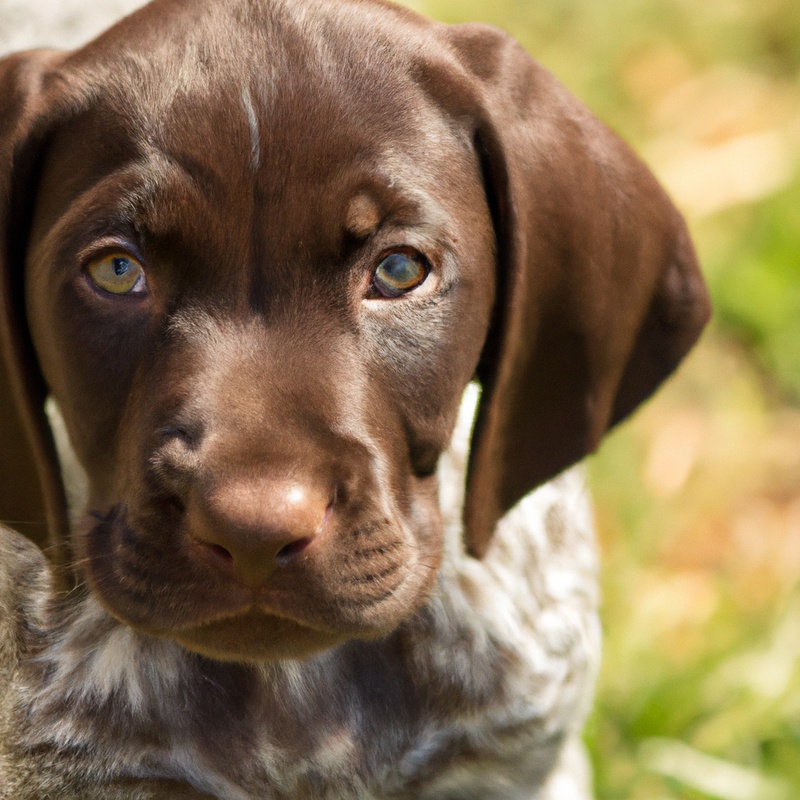
Basic obedience training for German Shorthaired Pointers
Basic obedience training is an important foundation for any dog, including German Shorthaired Pointers. The key to success is patience, consistency, and positive reinforcement.
Here are some key aspects to focus on:
- Start with basic commands: Teach your German Shorthaired Pointer essential commands like “sit,” “stay,” “down,” and “come.” These commands will help establish control and ensure their safety in various situations.
- Leash training: Train your German Shorthaired Pointer to walk politely on a leash. Start with short walks and gradually increase the duration. Encourage good behavior with treats and praise.
- Socialization: Introduce your dog to different people, animals, and environments at a young age. This will help them develop good manners and remain calm in new situations.
- Positive reinforcement: Use rewards, such as treats, praise, and playtime, to motivate and reward your German Shorthaired Pointer for good behavior. Avoid punishment-based training methods, as they can be counterproductive.
- Consistency and repetition: Dogs learn through repetition, so practice commands regularly in various settings. Consistency is key to ensure that your German Shorthaired Pointer understands and obeys commands in different situations.
Introduction to scent work and tracking
Alright, let’s dive into the fascinating world of scent work and tracking! These activities tap into a dog’s incredible sense of smell and natural instincts. Whether you’re a beginner or have a seasoned pup, scent work and tracking can be a fantastic way to engage your German Shorthaired Pointer’s mind and provide them with a fulfilling and entertaining pastime.
Scent work involves teaching your dog to use their nose to locate and identify specific scents, such as odors from essential oils or target objects.
It’s like a treasure hunt for your furry friend! This activity not only stimulates their senses but also builds their confidence as they learn to rely on their nose. Tracking, on the other hand, involves teaching your dog to follow a specific scent trail left by a person or animal.
It’s a skill that taps into their natural hunting instincts.
By allowing your German Shorthaired Pointer to explore the world through scent, you’re providing them with a mentally challenging and rewarding experience. One of the best things about scent work and tracking is that they can be adapted to different levels of difficulty.
You can start with simple hiding games or short scent trails and gradually increase the complexity as your dog becomes more confident and experienced.
To get started with scent work and tracking, you’ll need some basic training equipment and plenty of rewards to motivate your dog. You can use treats, praise, or a favorite toy as a positive reinforcement during the training process.
Remember, it’s all about making it fun and rewarding for your furry friend!
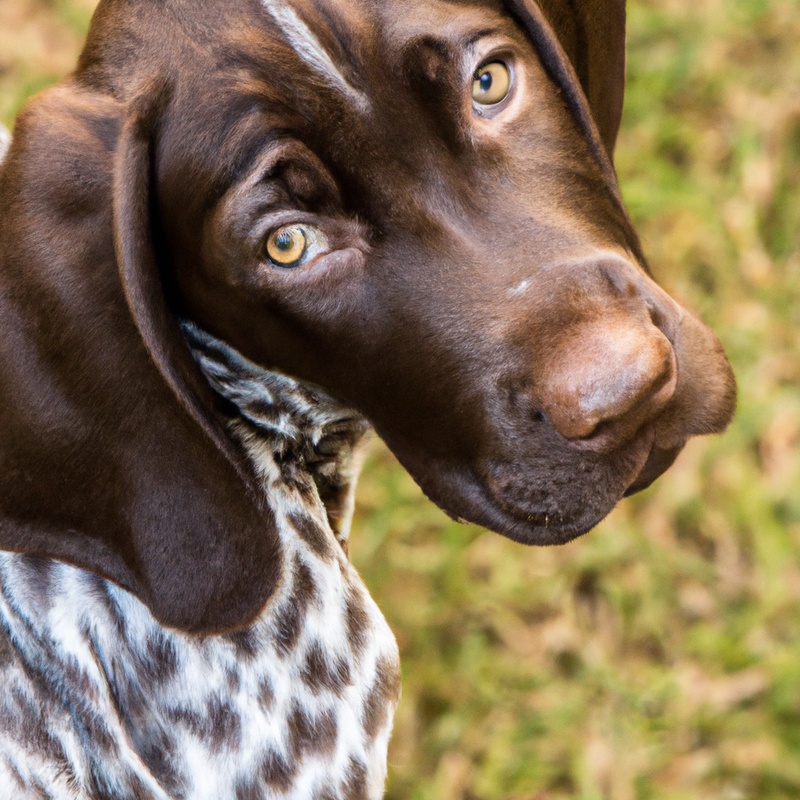
Retriever training for waterfowl hunting
Retriever training for waterfowl hunting is essential if you want a well-trained dog by your side during your hunting trips. It’s not enough to rely solely on the natural instincts of your retriever; proper training is crucial.
First and foremost, obedience training is key.
Your dog should have a solid understanding of basic commands like sit, stay, and come. This will ensure that they listen to your commands and stay focused during the hunt.
Incorporate frequent practice sessions into your routine to reinforce these commands.
Next, gun dog training is necessary. Introduce your dog to gunfire gradually, starting with soft sounds and gradually increasing the volume.
This will help them get used to the noise and avoid becoming gun-shy.
Another important aspect of retriever training for waterfowl hunting is teaching your dog to retrieve the birds. Use dummy retrieves during training sessions to simulate the hunting experience.
Start with short distances and gradually increase the difficulty.
Finally, introduce your retriever to water. Teach them to swim and retrieve objects from the water, as this is essential for waterfowl hunting.
Patience and positive reinforcement are key here.
Keep training sessions fun and rewarding to keep your dog motivated and engaged.
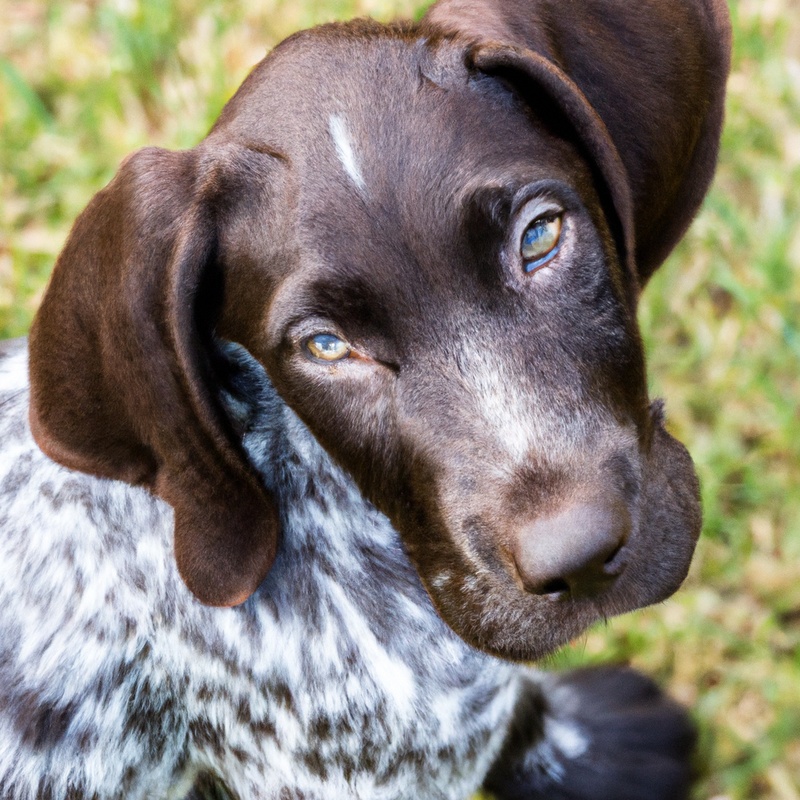
Developing pointing and flushing skills
Developing pointing and flushing skills is essential when training a German Shorthaired Pointer for hunting. First and foremost, it’s important to establish a strong foundation of basic obedience commands such as sit, stay, and recall.
These commands will form the basis for advanced training.
To develop pointing skills, it’s crucial to introduce the dog to the scent of game birds. Start by using a bird wing or a bird scent dummy to help the dog associate the scent with the game.
Gradually progress to having the dog find and point live birds.
Encourage and reward the dog for maintaining a steady point. Flushing skills can be developed by incorporating carefully controlled training scenarios.
Start by using a decoy bird to simulate flushing.
Gradually introduce live birds and reinforce the training with positive reinforcement when the dog flushes the birds in a controlled manner. Remember to be patient and consistent in your training approach.
Each dog is unique and may progress at a different pace.
By implementing these strategies, you can help your German Shorthaired Pointer develop strong pointing and flushing skills, enhancing their performance as a hunting dog.
Techniques and tips for training a novice German Shorthaired Pointer
Positive reinforcement-based training methods
Positive reinforcement-based training methods are highly effective when it comes to training German Shorthaired Pointers. First and foremost, these methods involve rewarding desired behaviors instead of punishing unwanted ones.
This helps create a positive association and motivation for your dog to learn.
Here are some tips for implementing positive reinforcement training with your German Shorthaired Pointer:
- Use treats, praise, and toys as rewards for good behavior. This will reinforce the behavior you want to see more of.
- Break down training tasks into smaller, manageable steps. This will make it easier for your dog to understand and succeed.
- Be consistent with your rewards and timing. Reinforce the behavior immediately after your dog performs it correctly.
- Use a clicker to mark the exact moment your dog does the desired behavior, then follow it up with a reward.
- Keep training sessions short and fun. Dogs have a shorter attention span, so it’s important to keep them engaged and eager to learn.
- Be patient and understanding. Training takes time, and every dog learns at their own pace.
By incorporating positive reinforcement-based training methods, you can effectively train your German Shorthaired Pointer to be a skilled hunting dog, even without any previous experience.
Building trust and establishing a bond with the dog
Building trust and establishing a bond with your German Shorthaired Pointer is key to successful training, whether it’s for hunting or any other purpose. Dogs are social animals, so they thrive on companionship and trust.
Here are some tips to help you build that bond:
- Spend quality time together: Dogs need your time and attention. Engage in activities your dog enjoys, such as playing fetch or going for walks. The more positive experiences you share, the stronger your bond will become.
- Use positive reinforcement: Reward your dog for good behavior with treats, praise, and affection. This positive reinforcement will strengthen the trust between you and your dog.
- Be consistent: Consistency is crucial in training. Create clear rules and routines for your dog, and stick to them. This helps establish trust and makes it easier for your dog to understand what is expected of them.
- Communicate effectively: Dogs rely on your body language and tone of voice to understand you. Use clear and consistent signals to communicate with your dog, and be patient while they learn.
- Build trust through handling: Get your dog used to being touched and handled in various ways. Start with gentle touching, and gradually introduce brushing, nail trimming, and other necessary grooming tasks. This will help build trust and reduce any anxiety your dog may feel.
Gradual exposure to hunting scenarios and environments
Gradually exposing your German Shorthaired Pointer to hunting scenarios and environments is key to their training as a hunting dog. Start by introducing them to the sights, sounds, and smells of the outdoor environment.
Take them on walks in areas where hunting activities occur, such as fields or wooded areas.
Gradually increase the level of stimuli, like introducing them to the sound of gunshots. It’s important to ensure their comfort and build positive associations with hunting situations.
Slowly introduce them to retrieving objects, using scent trails, and eventually mock hunting scenarios with dummies or training birds.
The importance of consistency and patience in training
When it comes to training your German Shorthaired Pointer, consistency and patience are key. First and foremost, you need to be consistent in your commands and expectations.
Using the same cues and signals, and rewarding or correcting behaviors consistently, will help your dog understand what you want from them.
Patience is equally important. Remember that training takes time, and every dog learns at their own pace.
It’s important to stay calm and patient, even when your dog might not be getting it right away.
Rushing or getting frustrated can hinder their progress. Take the time to break down the training into small steps and celebrate each small victory along the way.
Consistency and patience go hand in hand.
By consistently reinforcing desired behaviors and patiently working through challenges, you can help your German Shorthaired Pointer become a well-trained and obedient companion.
Seeking professional guidance for training a hunting German Shorthaired Pointer
Hiring a professional hunting dog trainer
Hiring a professional hunting dog trainer is a great idea if you want to train your German Shorthaired Pointer to be a hunting dog. These trainers have the knowledge and experience to effectively teach your dog the skills needed for hunting.
They can help with obedience training, scent tracking, and retrieving.
Plus, they can tailor the training to fit your dog’s specific needs and abilities. So, if you want the best chance of success, considering hiring a professional trainer is a smart move.
Joining hunting clubs and training groups
If you’re looking to train your German Shorthaired Pointer to be a hunting dog, joining hunting clubs and training groups can be a great idea. These clubs and groups are filled with experienced hunters who can offer guidance and tips on training your dog.
Being part of these communities also gives you the opportunity to participate in group training sessions and field trials, which can enhance both you and your dog’s hunting skills.
It’s a fantastic way to learn from others who have already mastered the art of training hunting dogs.
Utilizing online resources and tutorials for guidance
Utilizing online resources and tutorials for guidance can be a great way to train your hunting German Shorthaired Pointer. First and foremost, there are numerous websites and forums dedicated to dog training that offer valuable tips, techniques, and advice specifically for hunting dogs.
These resources often provide step-by-step instructions and videos to help you understand and implement effective training methods.
Additionally, there are many tutorial videos available on platforms like YouTube, where experienced trainers share their knowledge and demonstrate training techniques. By incorporating these online resources into your training routine, you can gain valuable insights and guidance to help you train your German Shorthaired Pointer to be a successful hunting dog.
Potential challenges and considerations when training a novice German Shorthaired Pointer
Overcoming breed-specific traits and tendencies
Overcoming breed-specific traits and tendencies is an important aspect of training a German Shorthaired Pointer. These dogs are known for their high energy levels, intelligence, and hunting instincts.
To overcome their natural tendencies and ensure successful training, it’s crucial to provide them with plenty of mental and physical stimulation.
This means engaging them in activities such as obedience training, agility courses, and regular exercise. Another important consideration is socialization.
German Shorthaired Pointers have a strong prey drive, so exposing them to different environments, people, and animals from a young age will help them develop good behavior and reduce any potential aggression.
Consistency is key when training these dogs. Establishing clear rules and boundaries, and using positive reinforcement techniques, will help guide them towards the desired behaviors.
Patience and persistence are also necessary, as breaking some of their natural instincts may take time.
Addressing potential genetic limitations
Addressing potential genetic limitations is a crucial aspect when training a novice German Shorthaired Pointer (GSP) to be a hunting dog. First and foremost, it’s important to understand that GSPs have been selectively bred for their hunting abilities and instincts.
However, each dog’s genetic makeup varies, and some GSPs may have limitations when it comes to certain hunting skills.
To address potential genetic limitations, it is recommended to assess the individual GSP’s strengths and weaknesses. This can be done through professional evaluation or working with an experienced trainer who understands the breed.
By identifying areas where the dog may struggle, you can tailor the training program to focus on those specific skills.
Another approach is to provide ample socialization and exposure to different hunting scenarios from a young age. This can help the GSP build confidence and adaptability, which may help overcome certain genetic limitations.
Additionally, incorporating positive reinforcement training techniques can enhance the dog’s motivation and enthusiasm during training sessions.
Managing expectations and recognizing individual variations
When it comes to training a novice German Shorthaired Pointer to be a hunting dog, managing expectations is key. Every dog is unique, and individual variations are to be expected.
First and foremost, understanding that not all dogs will progress at the same pace is crucial.
Some German Shorthaired Pointers may pick up commands quickly, while others may require more time and patience. It’s important to be flexible and adapt your training methods to suit your dog’s specific needs.
Recognizing and appreciating their individual variations will go a long way in ensuring successful training.
Keep in mind that consistency, positive reinforcement, and a lot of practice are essential in helping your German Shorthaired Pointer reach their full potential as a hunting dog.
Celebrating successes and milestones in training a hunting German Shorthaired Pointer
Gradual progression and skill development
Gradual progression and skill development are key elements in training a hunting German Shorthaired Pointer. It’s important to take things step by step and not rush the process.
First and foremost, start with basic obedience training.
Teach your dog commands like sit, stay, and come. This will lay the foundation for more advanced training later on.
Next, introduce your dog to basic hunting skills.
Start with simple exercises like retrieving a toy or object. Gradually increase the difficulty by introducing scent and teaching your dog to track and point.
As your German Shorthaired Pointer becomes comfortable with these skills, you can move on to more advanced hunting techniques such as flushing and retrieving game.
Remember to be patient and consistent in your training efforts. Monitoring your dog’s progress and celebrating small milestones along the way will help keep motivation high.
Gradually increasing the difficulty of the tasks and challenging your dog’s skills will lead to continuous skill development and a well-trained hunting companion.
Training achievements and accomplishments
Training achievements and accomplishments can be a source of pride and joy for any dog owner, particularly when it comes to hunting breeds like the German Shorthaired Pointer. One of the key milestones is successfully teaching your dog basic obedience commands such as sit, stay, and come.
These commands lay the foundation for further training and ensure a well-behaved hunting companion.
Another achievement is introducing your German Shorthaired Pointer to retrieving exercises. Retrieving is an essential skill for a hunting dog, as they need to bring back prey once it’s been shot.
Through consistent practice and positive reinforcement, you can train your dog to retrieve and deliver birds or other game objects with precision and enthusiasm.
Additionally, teaching your Pointer to point or “hold” is a significant accomplishment. This unique behavior involves your dog freezing and pointing towards a bird or prey, allowing the hunter to approach undetected.
By implementing gentle encouragement and rewarding your dog’s natural instincts, you can cultivate this remarkable trait.
Lastly, advanced training accomplishments may include teaching your German Shorthaired Pointer to master complex commands like heel, track scents, and perform blind retrieves. These skills can greatly enhance your dog’s effectiveness in the field and contribute to a successful hunting experience.
Sources of motivation and encouragement
When it comes to training a German Shorthaired Pointer to be a hunting dog, motivation and encouragement play a crucial role in achieving success. First and foremost, positive reinforcement is a powerful source of motivation.
By praising and rewarding your dog for good behavior and successful training sessions, you create a positive association and encourage them to continue performing well.
Another source of motivation is bonding and building a strong relationship with your dog. Spending quality time together, engaging in play, and showing them affection and attention helps create a sense of trust and motivation to please you.
Consistency is key in maintaining motivation.
By implementing a consistent training routine and using the same commands and techniques, your dog will develop a sense of predictability, which can keep them motivated to learn and perform. Setting achievable goals and celebrating milestones along the way can also provide a boost of motivation.
By breaking down the training process into smaller steps and acknowledging each successful achievement, you and your dog will feel a sense of progress and accomplishment.
Lastly, incorporating variety and challenges in your training sessions can keep your dog engaged and motivated. Introducing new tasks, obstacles, and environments can stimulate their instincts and keep the training sessions interesting and fun.
Final Verdict
I firmly believe that a German Shorthaired Pointer can indeed be trained to be a hunting dog without previous experience. By understanding the breed’s key characteristics and natural hunting instincts, establishing a strong foundation of obedience, and gradually developing hunting-specific skills, owners can unlock their dog’s full potential.
Utilizing positive reinforcement-based training methods, seeking professional guidance, and persevering through potential challenges, individuals can achieve remarkable results in training their German Shorthaired Pointers.
Remember, consistency, patience, and a deep bond with your furry companion are the keys to success. So why wait?
Embark on this rewarding journey and witness the transformation of your German Shorthaired Pointer into an exceptional hunting companion.
Happy training!

